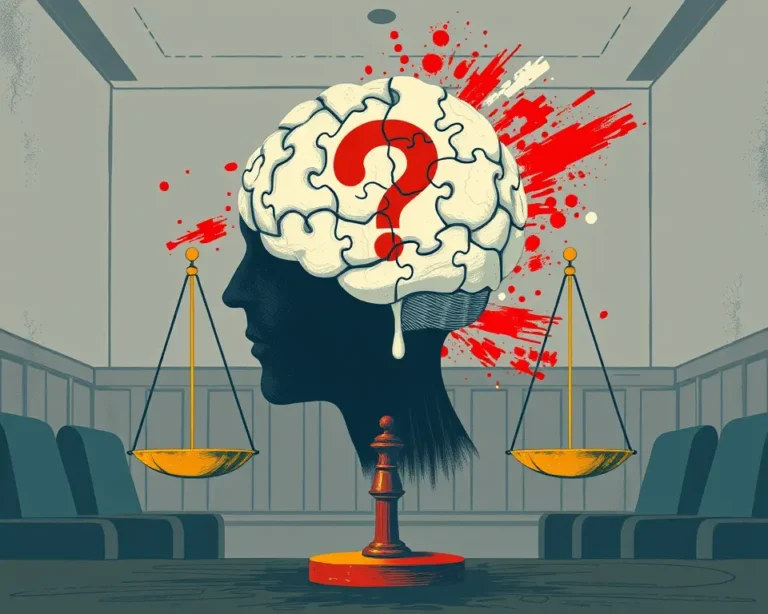The legal proceedings for the suspect in the tragic Lapu-Lapu Day festival killings in Vancouver have taken an unexpected turn. Instead of moving directly to trial, the court will first address a critical question: is the accused, Adam Kai-Ji Lo, mentally fit to stand trial? This development, stemming from a recent psychiatric evaluation, throws a wrench into the timeline and raises complex legal and ethical considerations.
The Unfolding of Events
On April 26, 2025, the annual Lapu-Lapu Day festival in Vancouver became the site of a horrific incident. An SUV plowed through a crowded street, leaving a trail of devastation with 11 people dead and dozens more injured. Adam Kai-Ji Lo was arrested and faces eight counts of second-degree murder, with the possibility of additional charges.
Following his arrest, Lo’s lawyer, Mark Swartz, requested a psychiatric evaluation for his client. Judge Reg Harris granted the request, leading to a recent assessment. On May 30, 2025, in court, Swartz, Judge Harris, and the Crown prosecutor acknowledged receiving and reviewing the psychiatric report. Based on the findings, Swartz requested a hearing to determine Lo’s mental fitness to stand trial. The Crown did not object, agreeing that the report indicated a potential issue regarding the accused’s fitness under the Criminal Code.
What Does “Unfit to Stand Trial” Mean?
The concept of “fitness to stand trial” is a cornerstone of the justice system. It ensures that an accused person can understand the charges against them and participate meaningfully in their defense. According to Vancouver criminal lawyer Ian Donaldson, KC, who is not involved in the case, the test for fitness is whether the accused can understand the nature of the proceedings and assist in their defense. If deemed unfit, the proceedings are paused because the accused cannot understand what is happening and is unable to participate.
Several factors are considered when determining fitness:
- Understanding the charges: Does the accused comprehend the specific crimes they are accused of committing?
- Understanding the legal process: Does the accused understand the roles of the judge, lawyers, and jury? Do they grasp the concept of evidence and testimony?
- Ability to communicate with counsel: Can the accused effectively communicate with their lawyer, provide relevant information, and make informed decisions about their defense?
- Understanding potential consequences: Does the accused understand the possible penalties if convicted?
If an accused person cannot meet these criteria due to a mental health condition or cognitive impairment, they may be deemed unfit to stand trial.
The Fitness Hearing: What to Expect
Judge Harris has ordered a two-day hearing to assess Lo’s mental fitness. The psychiatrist who conducted the evaluation is expected to testify. The hearing will likely involve the presentation of evidence and expert opinions regarding Lo’s mental state.
During the hearing, the court will consider:
- The psychiatric report: The findings and conclusions of the mental health assessment will be a primary focus.
- Expert testimony: The psychiatrist who evaluated Lo will likely provide detailed explanations of their assessment and answer questions from both the defense and the prosecution.
- Other evidence: The court may consider other relevant evidence, such as medical records, witness testimony, and observations of Lo’s behavior.
The court must consider “whether the trial process can be modified, or assistance provided, to facilitate the [accused’s] understanding and effective participation in the trial,” so as to avoid a determination of unfitness. Examples of modifications include introducing frequent breaks or permitting a support person to be seated alongside the accused.
The standard for fitness to stand trial is relatively low. The court must decide if the defendant can:
- Understand the nature and purpose of the legal proceedings against them.
- Assist in their defense.
Possible Outcomes and Consequences
Following the fitness hearing, the court has several possible outcomes:
- Fit to Stand Trial: If the court determines that Lo is mentally fit, the criminal proceedings will continue as planned.
- Unfit to Stand Trial: If the court deems Lo unfit, the proceedings will be paused. The judge would likely order him to be held in custody for treatment in a psychiatric facility. The goal is to restore his fitness so that he can eventually stand trial.
- Unfit, but May Become Fit: The court may find the accused unfit but believes they could become fit within a reasonable time (often 12 months). In this case, the court may order treatment and set a review date to reassess fitness.
- Permanently Unfit: In some cases, the court may determine that the accused is permanently unfit to stand trial. This can lead to a forensic order (FO) or a treatment support order (TSO).
If deemed unfit, the B.C. Review Board would oversee the legal process moving forward. The accused can be re-evaluated and found fit to stand trial at a later date.
If the Tribunal decides the person is FFT then the FO or TSO will end and the person will go back to the criminal court. The Tribunal can make this decision at any hearing. On the last three-monthly hearing, which is usually about 12 months after the Court hearing, the Tribunal must decide whether the person is likely to be FFT within a reasonable time. After this decision, the Director of Public Prosecutions (DPP) must decide whether to discontinue the criminal proceedings in the criminal court. This means that the DPP decides whether the case goes ahead in criminal court or not.
The Publication Ban
Judge Harris has issued a publication ban on the reasons for the psychiatric assessment, its necessity, where it occurred, and its results. This ban aims to protect the integrity of the legal process and ensure a fair trial. The media can report on the application for the fitness assessment but cannot disclose details that could prejudice potential jurors or compromise the investigation.
The Broader Context: Mental Health and the Justice System in the Philippines
The case also highlights broader issues surrounding mental health and the justice system. Mental health fitness assessments may be required in legal proceedings. In the Philippines, the enactment of the Philippine Mental Health Act in 2018 signaled a step towards a comprehensive mental health framework. The Act underscores the importance of integrating mental health services into the broader healthcare system and ensuring access to mental health care for all Filipinos.
Implications for the Victims and Community
The delay caused by the fitness hearing adds another layer of pain and uncertainty for the victims and their families. The community, still reeling from the tragedy, must now wait longer for the legal process to unfold. Advocacy group Filipino BC has called the incident a “social disaster” and said victims and their families are still navigating the “emotional aftermath.”
Looking Ahead
Lo is scheduled to appear in Vancouver Provincial Court on June 6, 2025, to determine the dates for the fitness hearing. The hearing itself is not expected to occur until sometime in July. The court has a few options with Donnelly telling the judge one of the doctors treating Lo could write an update on his condition, and Harris said it would be helpful to have the “most up-to-date perspective.” Harris said past cases he’s been involved with demonstrated that mental health “changes and evolves, ebbs and flows dramatically.”
This case raises difficult questions about mental health, criminal responsibility, and the rights of the accused. The outcome of the fitness hearing will have significant implications for the legal proceedings and the pursuit of justice for the victims of the Lapu-Lapu Day festival tragedy.







